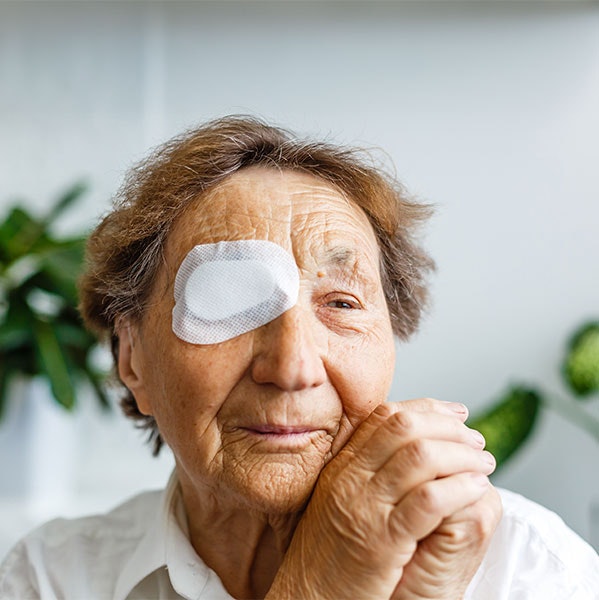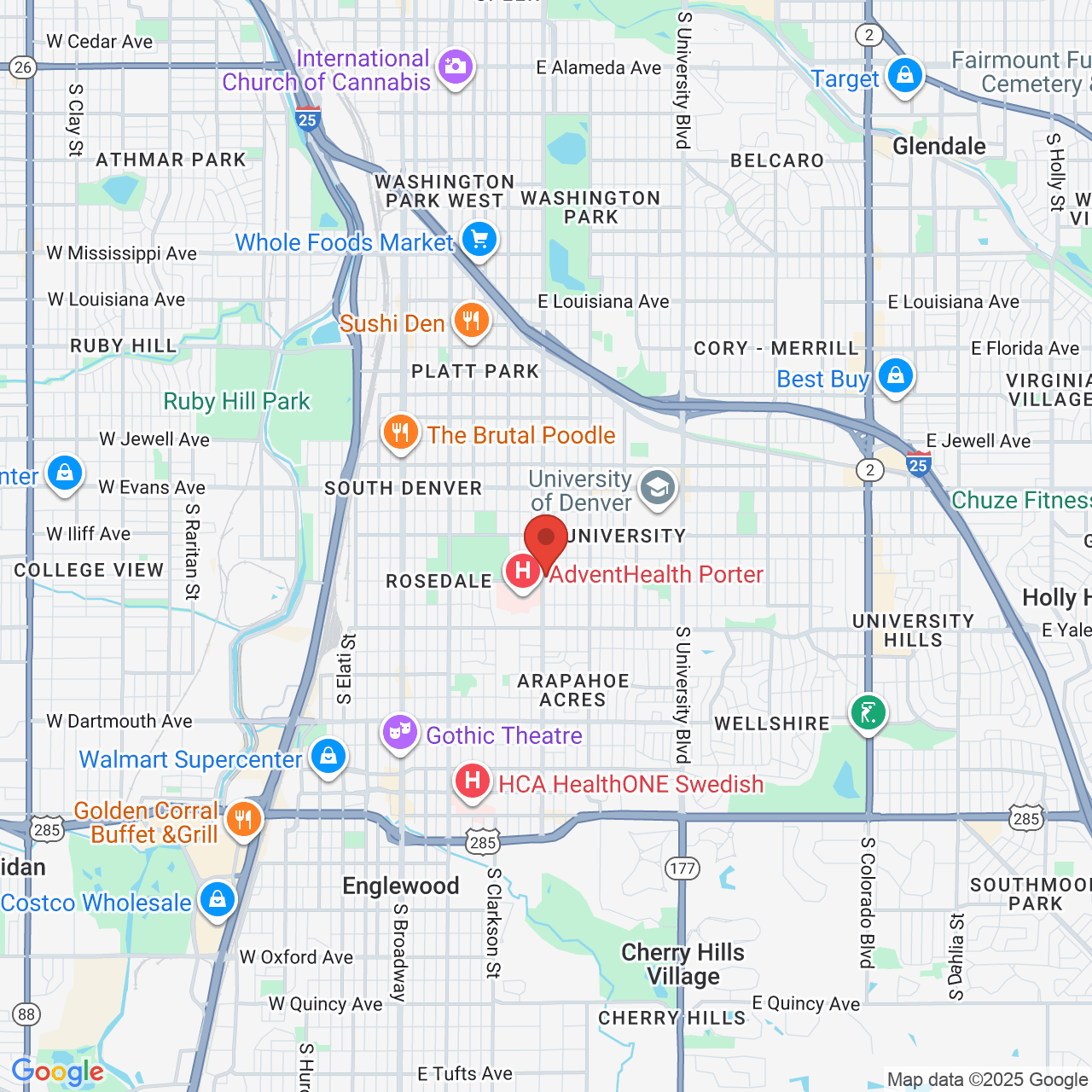Cataract Surgery Denver, CO
Trusted Surgeons. Life-Changing Results.
- Decades of proven experience in cataract surgery
- Most insurances accepted
- Cutting-edge technology for safe, precise outcomes
- Board-certified ophthalmologist
"I had a very successful cataract surgery."
— Dan, 5-Star Review
Your neighbors in Denver have trusted Hines Sight for cataract surgery and more for decades. Let our team deliver the same compassionate care and life-changing results for you. Call us or write to us today to request a consultation:
Paying for Cataract Surgery

Insurance Coverage
Most medical and vision plans cover basic cataract removal and standard IOLs. Laser surgery or premium IOLs may involve additional costs. Our team will help you confirm coverage and minimize out-of-pocket expenses.
Financing Options
We accept CareCredit®, which offers flexible monthly payment plans from six to 60 months, making cataract surgery more affordable.
Your Cataract Surgery Options
At Hines Sight in Denver
Our eyecare practice offers two types of cataract surgery to our Denver, CO, patients: ultrasound (the traditional version) and laser, a newer surgical method. Both surgeries involve breaking up and removing your natural, clouded lens and replacing it with an artificial lens called an intraocular lens implant (IOL). However, the methods differ.
Ultrasound Cataract Surgery
This conventional method of cataract surgery has been practiced for decades. It uses ultrasound energy to break up your clouded lens. The fragments of the lens are then gently removed. This type of cataract surgery requires an experienced surgeon with a steady hand, as the entire process is done manually. While it may sound intimidating, this is a safe surgery that has been performed millions of times.
Laser Cataract Surgery
A newer form of surgery, this procedure uses the precision of a laser to make the corneal incision and break apart the lens. Since the laser is programmed on a computer by the surgeon, its incisions are incredibly precise. The laser is highly accurate and efficient. With minimal human intervention, this form of surgery has few risks and is usually the preferred option for most patients.
What to Expect During Laser Cataract Surgery
Cataract surgery is the only way to address the symptoms caused by cataracts and restore clear vision. Fortunately, surgery is virtually painless and has a quick recovery period.
The entire laser surgery should take less than an hour. We'll ensure that your eye is completely numb before beginning treatment.
Receive Specialized Cataract Surgery in Denver From a Board-Certified Specialist
Cataract surgery is a delicate procedure that can only be performed by an ophthalmologist. At Hines Sight, your cataract surgery will be performed by a board-certified ophthalmologist. But what does board certification mean?
Dr. Justin Coco earned board certification with the American Osteopathic Board of Ophthalmology and Otolaryngology after passing rigorous written and oral examinations. He maintains his certification by completing continuing education requirements and submitting performance assessments to the Board. Dr. Coco takes his certification seriously. You can trust that his skills and techniques align with the highest standard of eye care.
Dr. Coco carries on our legacy of excellence in surgical eye care started by ophthalmologist William L. Hines, the founder of our practice. To learn more about Dr. Coco, what sets him apart from the rest, and how he can help you improve your vision in a single, virtually painless procedure, please contact Hines Sight today. Give our office a call at:
Dr. Justin Coco is our board-certified ophthalmologist. He is active in eyecare research and is affiliated with a number of prestigious hospitals and institutions around the United States.
“Very kind and communicated well.”
"Dr. Coco took the time to help me understand my eye condition and explain my treatment options. He was very kind and communicated well. I appreciated the personalized way he listened to my concerns and came up with a plan that met my needs - and fixed my eye problems! I would definitely recommend." — Deborah, 5-Star Review
Maintaining Your Results After Cataract Surgery
After cataract removal, patients should continue seeing our eye doctors for scheduled check-ups. This provides an opportunity to bring up any questions or concerns about your eyes post-surgery, and for our eye doctors to check on the progress of your recovery.
Health and Wellness Tips for Protecting Your Vision
We also recommend patients:
Refrain from smoking and using tobacco products
Eat a nutritious diet with leafy greens and healthy fats
Continue to wear sunglasses and protect their eyes from bright lights
These precautions don't just protect your eyesight after cataract removal. Following the advice above can also help minimize the risks of developing glaucoma, macular degeneration, and other age-related conditions that affect your sight.
Are There Side Effects To Cataract Surgery?
It is normal to have symptoms of minor discomfort and itching during the first few days after surgery. Serious complications like infections, severe pain, eyelid swelling, and retinal detachment are rare. Your risk of developing more serious symptoms is higher if you have another eye disease or underlying medical condition. Our doctors are experienced and well-trained on how to minimize your risk of developing these severe complications.
Are There Side Effects
To Cataract Surgery?
It is normal to have symptoms of minor discomfort and itching during the first few days after surgery. Serious complications like infections, severe pain, eyelid swelling, and retinal detachment are rare. Your risk of developing more serious symptoms is higher if you have another eye disease or underlying medical condition. Our doctors are experienced and well-trained on how to minimize your risk of developing these severe complications.
Ask About Cataract Surgery From a Trusted Denver Ophthalmologist

Although cataract surgery is one of the most commonly performed eye surgeries today, it is a serious procedure that requires an experienced eye surgeon with strong knowledge of lens implantation. The doctors at our ophthalmology office in Denver, CO, have provided Colorado patients with exceptional care for decades. Our dedicated team offers top-quality treatments that provide effective results and a rapid recovery.
If you are struggling with symptoms of cataracts, don't hesitate. Contact our practice to request your eye consultation.
Do I Have to Get an IOL During Cataract Surgery?
Yes. An IOL acts as a replacement for your natural lens. In order to retain your vision, you will need to have an IOL placed during cataract surgery after your compromised natural lens is removed. Because the eye's lens focuses light onto the retina, everything you see will be out of focus without it, leaving you functionally blind. An IOL is the only option for restoring your ability to focus light and see clearly after lens removal.
Getting an artificial eye lens may sound a bit intimidating, but rest assured that IOLs are a modern, safe, and incredibly common treatment option. Almost four million Americans undergo cataract surgery every year. Once your IOL is in place, you won't be able to feel a difference at all, and the visual differences are invaluable.
Keep in mind that IOL placement happens immediately after cataract removal, so you won't have to spend any additional time with blurry vision or return to our eyecare facility in Denver, CO, for a second procedure on the same eye.

Ready to Start Seeing Clearly? Call Us for Cataract Surgery in Denver

Whether you need a routine eye exam or a surgical procedure, Hines Sight provides Denver patients with the best in vision care.
Our mission is to maximize the vision and eye health of every patient we encounter. Our Denver, CO, ophthalmology office uses the latest technology to provide the highest quality of care. Hines Sight takes pride in providing state-of-the-art treatments in a relaxing, caring environment. Eye surgery can be a very intimidating thing, which is why our doctors take the time to get to know each patient's goals and needs and are happy to answer any questions about their upcoming surgical procedure.
If you're tired of looking through a cloud, contact our Denver, CO, office today to request your consultation.
(303) 777-3277
What Is a Cataract?
A cataract is a clouding of the crystalline lens, which lies behind the iris. The crystalline lens is responsible for focusing light rays on the retina, which is the part of the eye that senses light and transmits these images to the brain. When the lens becomes cloudy, light rays cannot focus properly on the retina, and your vision becomes blurry.
While vision loss can be slowed, many cataract patients will eventually need surgery to prevent hazy vision from limiting their quality of life.
The Causes of a Cataract
Age
Developing cataracts is part of the normal aging process for many people. More than half of Americans have had a cataract by age 80.
Trauma to the Eye
An accident or an injury to the eye can cause a cataract to form.
Environment
Some environmental factors, like toxic chemicals, have been linked to cataract development. Certain medications, such as corticosteroids and statins, may contribute to cataracts as well.
Light
Prolonged exposure to ultraviolet light or ultraviolet radiation can cause a cataract to form over time.
Heredity
You have a higher chance of developing cataracts if you have a family history of the condition.
Disease
Cataracts can also form as a result of eye disease or as a result of medical conditions, such as diabetes.
Can Cataracts Go Away on Their Own?
Unfortunately, the answer is no. Once a cataract forms, it is there to stay. It's possible to slow the progression of your symptoms with certain lifestyle changes, like maintaining a healthy weight and diet, quitting smoking, and protecting your eyes from sun exposure, but they will still get worse with time. Cataract surgery is the only method to eliminate a cataract entirely.
Cataracts and LASIK
LASIK is a refractive eye surgery used to correct farsightedness, nearsightedness, and astigmatism. LASIK cannot correct a clouded lens. However, if you have not achieved your best possible vision after cataract surgery, LASIK may be performed to enhance the quality of your sight.












